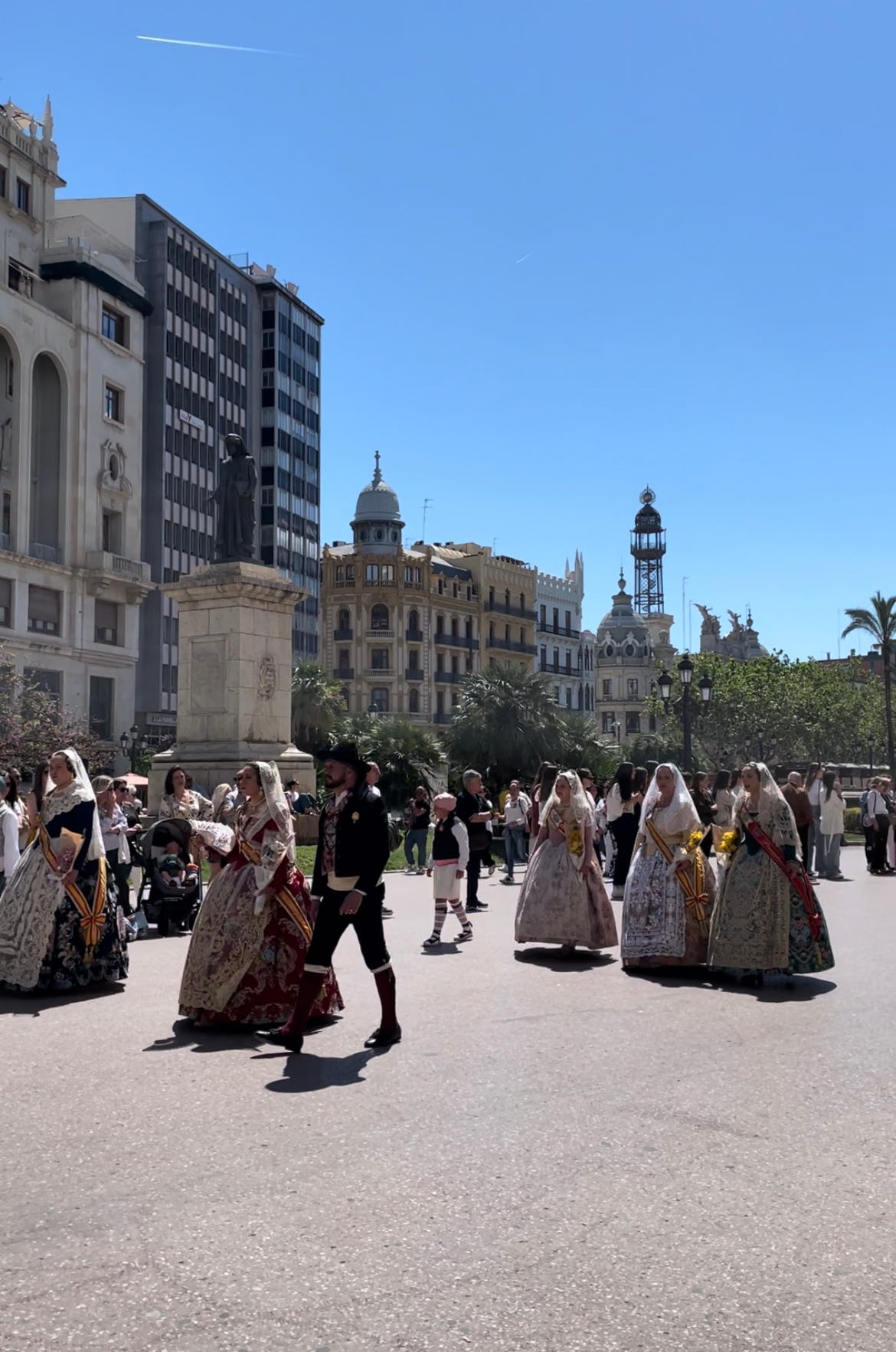On Monday, all of Spain and Portugal lost their electricity and for long hours the power was completely out. Rumours swirled of a cyber attack, Spanish TV stations played dramatic music to pre-recorded backdrops of nature, traffic lights were completely out causing car accidents and hardly anyone had a phone signal to contact the outside world.
For those affected, the world completely changed. People were stuck in lifts, trapped underground in metros and unable to get home.
But for many here in Spain, it was a welcome relief to escape the everyday grind. A perfect excuse to stop working and enjoy the company of friends outside in the sun without the endless distractions of the modern world.
In Valencia, Monday was a local holiday. It was a day for celebrating San Vicente Ferrer, the patron saint of the Valencian community and the region’s protector. There was a parade full of retired sailors dressed in black, older women draped in black veils and younger Valencianos wearing elaborate traditional outfits.
It was a beautiful sunny day, lots of people were outside and lining the streets. As the festivities carried on outside, the power cut was barely noticeable.
Walking the streets of Valencia you would never know a national emergency was unfolding. You would never suspect prime minister Pedro Sánchez was in emergency meetings and organising emergency electricity from France and Morocco.
In every square cafés were packed with people drinking lukewarm beverages and the park was packed full of families. The only clues were the queues for ATMs, as restaurants, shops and cafes could only accept cash, and the quiet roads where cars timidly crept forward. Anecdotally, my local tobacco shop had the longest queue of all.
As I returned to my building, my neighbour offered to help me carry my son up the three flights of stairs to our floor. He then passed the blackout time by teaching his own son how to cycle.
But for many it caused severe panic and confusion. The lack of electricity created a huge issue of isolation and disconnection from vital services. Several Spanish people may have died from blackout related causes.
Whether it was a novelty or tragedy, no one knew what to expect or when the power would come back on. Some said hours, others days.
“I’m 46,” a second Valenciano neighbour confided to me as we shared the lift up to the third floor once the electricity restarted. “And I’ve never experienced anything like this in my life.”
Having spent the past few years in Cairo, where power outages were a daily occurrence in summer, the lack of electricity didn’t phase me at all and I barely registered it as a problem at first. I regarded the outage as a perfect excuse to put down my laptop and go outside to have a drink in the sun.
It reminded me a little of one of my favourite quotes, “put the lights out so we can see better,” (DH Lawrence’s Women in Love). We were able to interact, go outside without staring at a phone and enjoy the world as all the lights were out.
The events also made me reflect on the close swing between utopian and dystopian outcomes. For some, Monday was a chance to disconnect. To chat to neighbours on balconies, light candles, spend time in the park with friends and log off from work.
For others, it was terrifying and tragic.
In Valencia, the power switched back on in the early evening – around six hours after it cut off. By midnight, almost the entire country had their power restored and the next morning life was back to normal.
The cause of the outage has not yet been determined and Sanchez has vowed to do whatever it takes to prevent a repeat of Monday’s blackout.






Nice to have your articles back; we missed our twice-weekly reads.